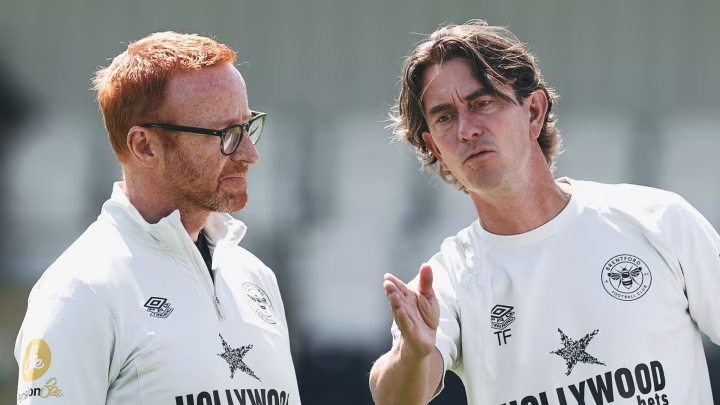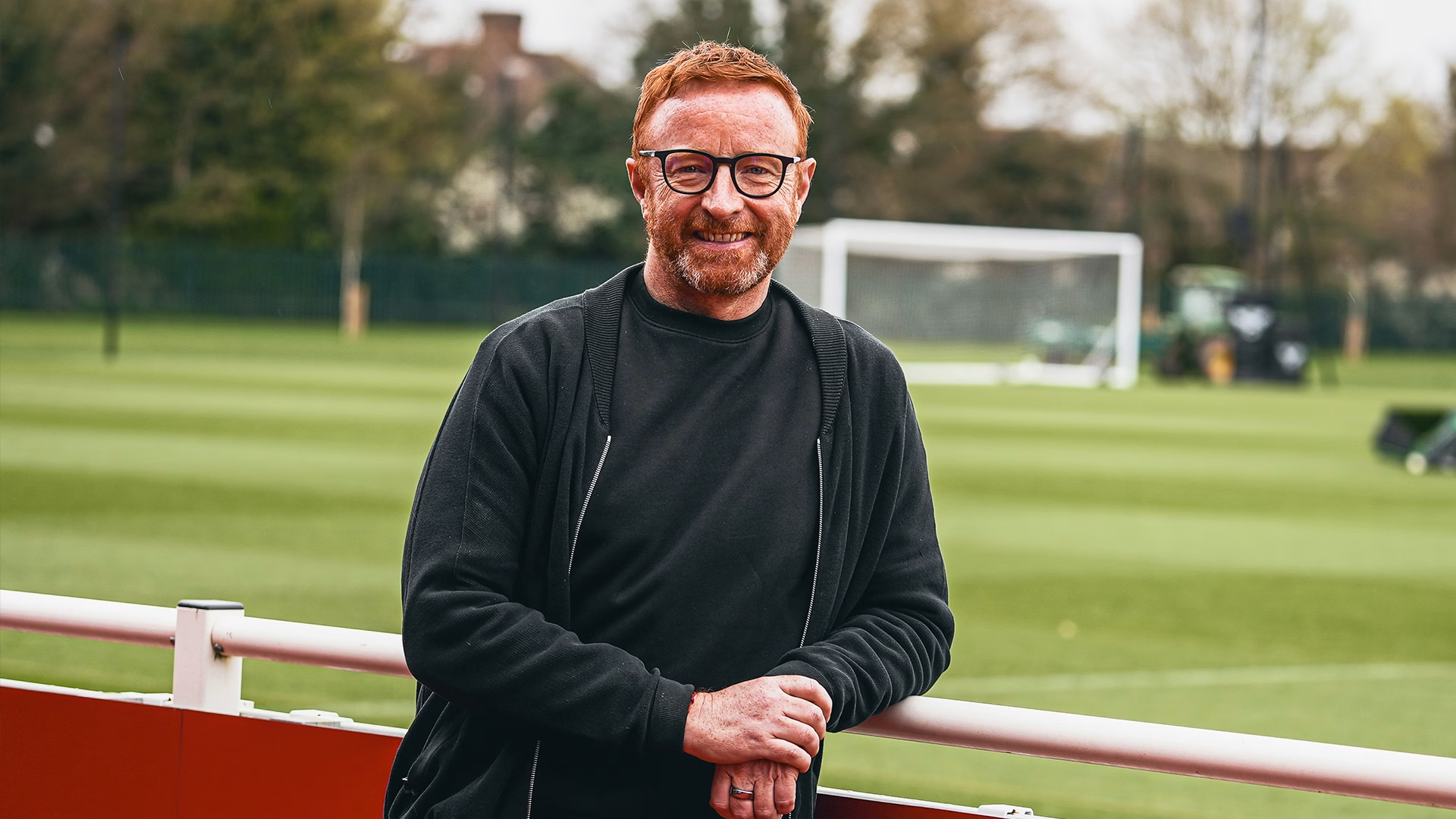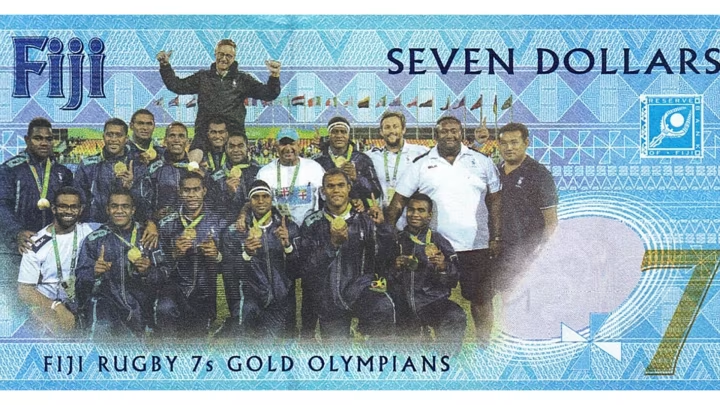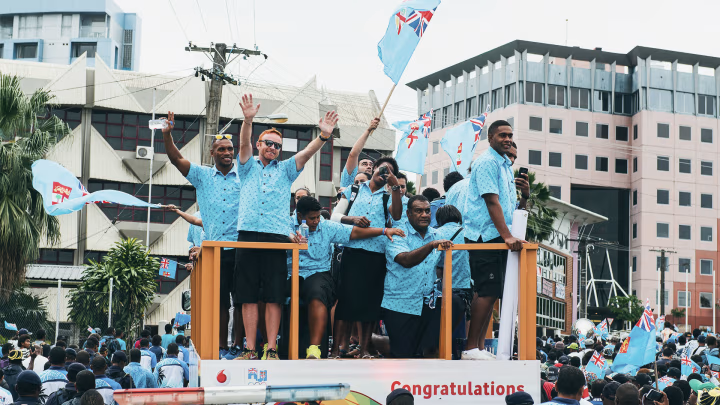TEDDINGTON-BASED BEN RYAN’S JOURNEY FROM OLYMPIC HERO TO PREMIERSHIP FOOTBALL


BY SAM MARSHALL
Name the man who lives in Teddington who led Fiji’s rugby sevens team to Olympic gold and ended up with his very own waterfall and his face on a specially commissioned $7 note.
The answer is Ben Ryan – or ‘Ratu Peni Rayani Latianara’ to give him his Fijian chief title by which he is also known.
Ben can often be seen in Teddington’s High Street enjoying a cup of coffee or the occasional drink in a local hostelry. He is now performance director at the local Premiership club Brentford and has played a key role in their success.
Seven years have passed since Ryan led Fiji to its first-ever Olympic medal in Rio de Janeiro, but he is still given a hero’s welcome when he returns to the country.
“I went back for three weeks last summer, and it was like I’d never left,” he says.
“There aren’t many gingers on the island, so I don’t get left alone! I will be asked for over 1,000 photographs a day, easily. My face hurts so much from smiling!
“I have to plan a trip to the supermarket – I know it’s going to take an hour and a half to get a loaf of bread – but it’s joyful and the people are very well meaning. It’s very nice to have so many people who feel so warmly about me.”
While Ryan will forever be connected with a country some 10,000 miles away in the South Pacific Ocean, his current role has brought him home.
Growing up, he lived on Field Lane, Brentford, less than a mile from Griffin Park. On matchdays, the sound of the crowd carried down the railway line at the bottom of his garden.
Ryan’s professional rugby career, which began as a player at the age of 17 and then evolved into coaching, meant he had little time to watch the Bees, but he squeezed in games whenever he could and became a season ticket holder in 2011.
“There was no phone coverage, and the toilets were s**t, but I’d get my Bovril at half-time and I could have 90 minutes where everything just disappeared,” Ryan recalls fondly.
“I was fully focused on watching Brentford. I’ve had some fairly big jobs, so knowing I could go to Griffin Park for a couple of hours was so good. I enjoyed it immensely.”
Appointed as the Bees’ performance director in June 2022, Ryan is among five staff, including head coach Thomas Frank, who report into director of football Phil Giles, while medical, welfare, logistics, performance, nutrition and kit staff feed into him.
Ryan specialises in improving culture and performance. The Loughborough and Cambridge graduate coached England’s rugby sevens before his time with Fiji, leading the side to their first World Cup final in 20 years, and after leaving full-time rugby worked as a consultant for world-class athletes, organisations and teams.
With Fiji, Ryan found himself building from the ground up (“it was me and a whistle and nothing else”). Lots of the processes, standards and strategies he implemented were new to the players and staff.
On a sevens trip to Dubai, he spotted one his players Mosese Mawalu strolling back to his table with a tower of 10 pains au chocolat, each with a fried egg on top. Mawalu was not wilfully choosing whatever he wanted to eat; he just had no real idea about what was best for an athlete.
“In Fiji, I sorted out their nutrition strategy, their diet, their physical load and educated them on some of the nuances around when to eat for training and competition. They saw an immediate benefit in energy levels and performance, so they bought straight in,” says Ryan.
“It’s the same for fitness standards, discipline, timings and tactics. If they immediately see there’s a benefit and they haven’t had that before, they’re in.”
Walking through the gates at newly promoted Brentford – an already successful set-up – posed an altogether different challenge…
“When there’s something already in place – ‘Okay, you’ve got something good here, but I think it could be better if you did A, B, C and D’ – you’re quite rightly going to have people who question why. ‘Why are you changing this? It’s worked really well.’ It’s a very good question, and that’s why you have to have things evidenced,” says Ryan.
“I was given time during the first few months to take a look at the landscape and make a personal MOT of the club.
“Look, observe and ask questions. Be open-minded and curious. Where are the gaps and opportunities?
“Then I sat down with Phil and started to talk about some of the things I was seeing. Some changes could be made five minutes later; others might be one or two seasons later. There’s a cadence for some of these things and you’ve got to prioritise.
“I always apply the Pareto principle: 80 per cent of your success is on 20 per cent of the things you do. These are the trampolines. What can we jump on to accelerate our performance?
“During the first season, we completely changed our grounds staff at the stadium and the training ground. That might sound fairly standard, but we’ve now got pitches where we can take corners and do set-pieces regularly and that’s important to us. Before, it was too muddy, it was wet and there wasn’t enough grass coverage.
“The operations department was also significantly changed, and a player care department created.”
Ryan adds: “There are other changes that are a bit more subtle but could have just as big an impact on performance, health of players and making as many players as possible available for selection. All of these things are important, they just have different timelines.
“We’ve had some injuries this season and we’re obviously looking hard at why that is. We’re not just deciding that they’re all unlucky. We’re not naïve enough to think that.
“And it goes back to what I was saying that everything is a journey and things take time to unpack.”
Last term, it was discovered that Brentford’s blue second kit soaked up sweat, meaning each player was carrying up to 500g extra during games. The Bees often decided to wear their third kit instead and worked with technical supplier Umbro to remedy the issue.
While valuable, Ryan is quick to stress that such changes are “the little extras, not the core part of my job.”
“The shirt was a bit of a headline,” he says. “I worked as a consultant for Nike in innovation and I can see why people grab those headlines, but those are just the standard things. You obviously want kit that fits, that doesn’t weigh you down and isn’t against your performance.
“If there’s anything small I see on the hoof – half-time, pre-match or post-match – I’ll ask, ‘Have you thought about this?’
“But I’ve got departments we’re trying to get as good as we possibly can – the fundamental stuff. Most things take time to improve and to grow.”
To steal a line from Ryan’s own website, his story is not about sport but about people.
Whether it’s a grounds person, a chef, a masseur, a coach, a physio or a player, building relationships and understanding what makes each individual tick is fundamental to his role.
Tattooed on Ryan’s wrist is ‘Vei Lomani’, a Fijian phrase that means love one another and work together.
“As a performance director, the easy bit is knowing the solution to making something better, whatever that might be,” Ryan insists.
“The hardest bit is then persuading, influencing and negotiating with the people involved to make them see that the change is going to be good and make that process happen. That’s the tricky bit.
“That’s probably the biggest challenge for anybody who’s looking to change processes or improve things. Or not change things as well, because people might feel they need change when they should actually stick to the process they’re working to. It’s about bringing people on the journey.
“There are a lot of moving parts, so you’ve got to be careful: this is what we want to change, these are the timelines, narrate that to the right people, evidence it and then communicate those steps all the way.
“It’s not straightforward but it’s part of the challenge that I really like, particularly once you see some benefits – a staff member stepping up or a process kicking in that has a tangible impact.”
No matter how strong your processes are, luck is always going to be a major factor in football, with matches often decided by the finest of margins. An unintentional handball adjudged to be a penalty, a deflection off the post or a marginal offside can decide the outcome of a game.
In a sport of such randomness, and when success is so often judged by a scoreline, how important is rational decision making?
“The lead from the top is crucial, from Mathew [Benham], Phil, Jon [Varney], Lee [Dykes], Nity [Raj] and Cliff [Crown],” says Ryan.
“You shouldn’t underestimate the quality they bring into the building to be strategic and make sensible, right decisions in the best interest of the sustainability of the club in the Premier League.
“I’ve been massively impressed. I’ve worked in a lot of big organisations, and I’ve had line managers who have been convicted murderers and military dictators, so I know how difficult it can be to get it right at the top and how it cascades down and impacts the day to day.
“Thomas is in that group as well. He’s so consistent with his energy, how he relates and communicates with people, and that’s a real super strength of his. All of that is wrapped up in the club to ensure we’re not making knee-jerk reactions or getting too carried away either way.”
Ryan continues: “Phil’s said that if we were to do a documentary here, and the club’s probably turned down a few offers in the past, it might be quite boring!
“We’re just doing sensible things every day, and that shouldn’t be underestimated in elite sport. We’re not suddenly hoofing out half the staff after a poor run of games, deciding to bring in a bit of kit that a quarterback has used in a Netflix series or hiring someone because they’ve got friends at the club or they’re a former player.
“We do things in a professional way, and we’ve consistently done it, and that’s a big reason why we are where we are.”
The Premier League is not a level playing field. With Brentford regularly competing against clubs with far greater resources, what does success look like to the Bees’ performance director?
“I’m not naïve enough, with almost 25 years working in professional sport, that it’s not a lot harder without the resources the top teams have,” Ryan concedes.
“But, in my head, nothing is impossible. Other clubs can spend money on players that we can’t, however there are things that we can do here that would be best practice in the league – as good as anything City, Liverpool or United do.
“Cash isn’t always a limiting factor for us; it’s just good joined-up thinking and getting the right people in the building who are making the right decisions.
“There’s no reason why we can’t be the best-run club in the Premier League, because that’s not about cash, that’s just good thinking, and that’s always our aspiration.”
REPRODUCED WITH PERMISSION OF BRENTFORD FOOTBALL CLUB AND BEN RYAN




